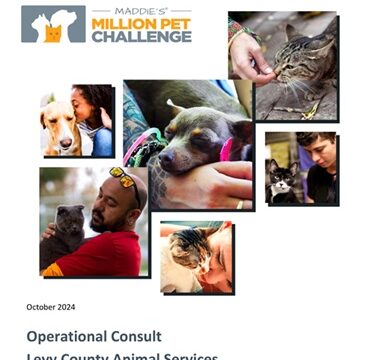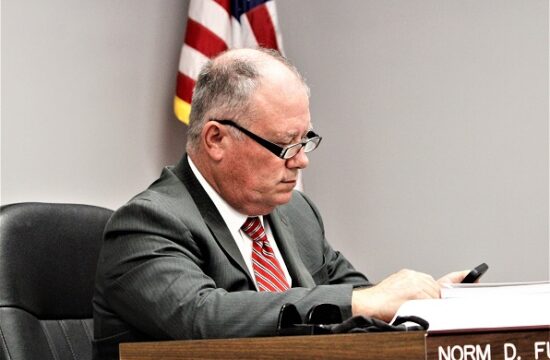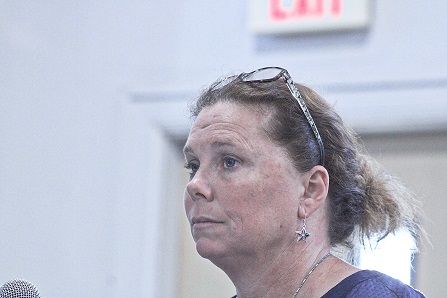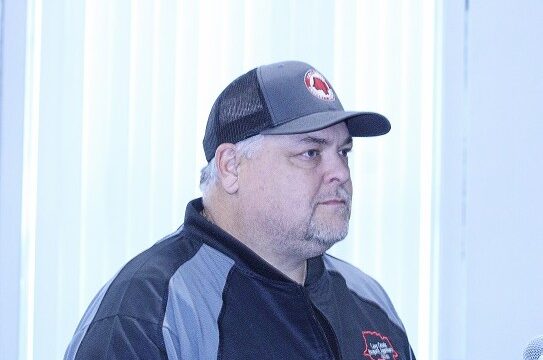By Terry Witt – Spotlight Senior Reporter
Levy County Commission Chairman Matt Brooks’ efforts on Tuesday to portray manure composting farms as a “viable industry” in Levy County’s mainstream farm environment met with polite but stern opposition from the board’s only farmer, Desiree Mills.
Mills said she wasn’t ready to accept Brooks’ recommendations for how to regulate manure composting farms nor was she prepared to proceed with any type of ordinance that would open the door to more composting farms and she definitely didn’t want to live next door to one.
The first-term commissioner said she doesn’t want the board to shut down any current manure composting operations but at the same time, she was worried about allowing the farms to proliferate and spread throughout the rural areas of Levy County.
“There has to be density. We don’t want this popping up everywhere. We don’t want this all over. There are just so many things to take care of with this,” Mills said.
Commissioner John Meeks followed Mills lead in congratulating Brooks on his research on manure composting farms. He added that if someone wants to do this type of operation on their property, they should have a right to do it, but at the same time, he doesn’t want to live next door to a composting farm, which he likened to a dump.
“I don’t want one next to my house either. If someone did that and they met the regulations, that’s their property and they have the right to do what they want on it,” Meeks said. “As an advocate for property owner rights, I always try to balance that because you’ve got to protect the rights of people that own the property but you have to protect the rights of people who were established and were there (first), so where do we draw the line? We need to do a lot of work.”
Brooks, who famously said a few months ago that he didn’t want Levy County to be the dumping ground for horse manure from Marion County horse facilities like World Equestrian Center in Ocala, did an about-face and decided to find a way to embrace the flow of horse manure into Levy County by establishing county regulatory controls on the manure composting farms.
He wanted the board to consider approval of the composting farms through a public hearing permit process known as a special exception that would give notice to the public and give the owner of the farm a chance to defend what he was proposing while offering neighbors a chance to mount stiff opposition if they didn’t want to live next door to such a facility.
“They (compost farmers) will look at our guidelines now and they will recognize this as a viable industry in our community in close proximity to World Equestrian Center and many other farms,” Brooks said. “These operators will need to be registered facilities with the State of Florida. There is actually a registration process. They would have to go through to achieve that, and they would have to jump through all those hoops at the state before checking that box for us when they came to apply.”
Brooks visited the Black Kow manure composting facility in Sumter County. He said it was a clean operation and the county administrator felt the company, a nationally known firm, is a good member of the agriculture community. Brooks showed a slide presentation of the Black Kow facility.
His remarks were part of a lengthy discussion by the board and members of the public at a workshop aimed at amending the county’s Land Development Code to patch up holes in the LDC and make it work better for the public, but the unanswered question regarding composting farms was whether allowing the flood of horse manure from Marion County horse facilities to continue flowing into Levy County is a good idea and whether there are appropriate locations for manure composting farms in the county. Who would want a manure composting farm in their backyard or next to their rural home? How would such a farm impact property values of rural residential homes?
Brooks said composting in Levy County would consist of horse manure mixed with wood shavings being spread on a field. The manure and shavings would be allowed to decompose and turn into composting soil. Sometimes the horse manure is mixed with cow manure or chicken manure to make it degrade faster. He said if the manure is turned properly, it can decompose into composting soil in a matter of six months, but if the turning isn’t done correctly, it could take as long as 12 months.
Advocates of composting farms view the farms as an ideal method of organic farming, but opponents see the farms as nothing more than piles of manure that are allowed to cook in the hot Florida sun, draw flies, and potentially contaminate the aquifer with pharmaceutical medicines injected into high priced horses in Ocala during shows and competitions.
Meeks was somewhat sympathetic to Brooks’ concerns and yet brutally frank about the issue.
“Nobody up here wants a dump in our county. As you stated so eloquently, we know it’s coming here. We know it’s here. There are people doing this as we speak and they are regulated by the State of Florida,” Meeks said. “The stuff has to go somewhere. I think we are on the right path with regulation. We’re going to have to continue to deal with it. We don’t need to just turn a blind eye.”
But Meeks said it will need a lot more discussion.
Among the many considerations is what type of zoning would be authorized for manure composting farms in rural areas – Forestry- Rural Residential? Agriculture-Rural Residential? Rural Residential? Commercial 3? Commercial 4? Or Industrial? All those zones were discussed. Mills favored industrial zoning but Brooks felt that composting farms are agricultural and should be located in agricultural zones.
Morriston resident Kristine Switt said composting farms aren’t agriculture. There’s no agricultural production on composting farms. She said it’s a process of manufacturing a product after importing it from another location.
Mills agreed with Switt.
“An agricultural producer produces something. They produce it on their farms. Bringing in this waste is not production. That’s why I said it should be in industrial,” Mills said.
————————–
Composting Farm Recommendations of Commission Chairman Matt Brooks
1. Major Commercial Composting Operations are to be an allowable use by Special Exception in Levy County in FRR and ARR zoned areas.
2. All operations are required to be a registered facility with the State of Florida and be recognized as compliant with all state regulations.
3. Approved operations will be required to renew their Levy County operating permit every 5 years. This renewal allows for checks and balances and for conditions to be updated if there are any unforeseen issues that may arise. Levy County cannot discontinue a renewal of permit arbitrarily if the operator has adhered to all regulations set forth, just as any other special exception is given to other applicants in the county. Should any violations of the special exception arise Levy County has the authority to give the operator an opportunity to come back into compliance or to terminate the special exception altogether.
4. Composting operations will have the ability to sell their end product directly from their facility (ie..Nurseries, farmers, residents etc. Some want it in bulk and not bagged from stores). If the proper state permits are secured for this type of activity, Levy County will also recognize the operators right to sell direct to the public from their operation. (It would make little sense to allow an operator to take in product on a piece of property, then not allow them to also get rid of the finished product.)
5. Operations are to be located on a minimum of 20 acres.
6. Operations are to be located on direct access arterial county roads or state highways. We do not want large trucks and semis running down small streets impacting local roads and creating greater safety issues on our more narrow roadways.
7. Facility is responsible for driveway apron/connection to said roadway and any repairs that may be required to continue safe ingress and egress. If operation is affecting roadway that requires repairs or maintenance, county may require operator to make or pay county for repairs to the roadway areas closest to operation entrance.
8. Operator will ensure truck traffic is NEVER staged in right of way and will provide proper staging areas on their property for all trucks.
9. Operators are required to have truck route approval by county road department (this would address ingress and egress from the property and any potential smaller cut through roads that should be considered “off-limits”).
10. Operators will maintain a 20′ access road around operation for emergency service vehicles access. (this follows state regs) Vegetative buffer or screening of may be required which could increase total setback requirements to 30-40′ maximum.
———————–
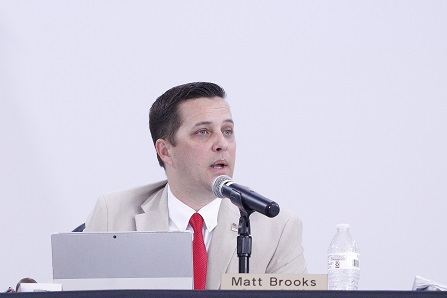
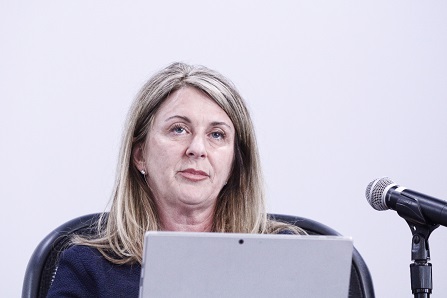
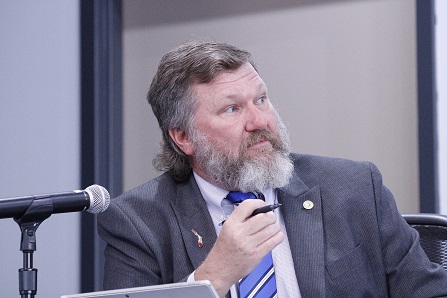
Board of County Commission Land Use Workshop February 21, 2023; Posted February 23, 2023




